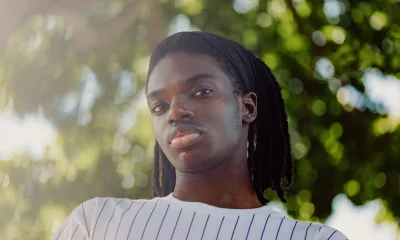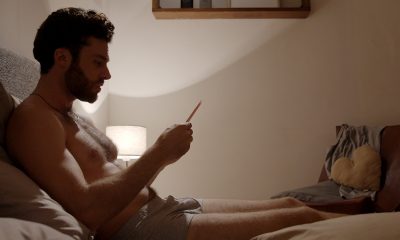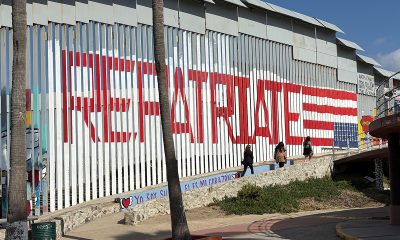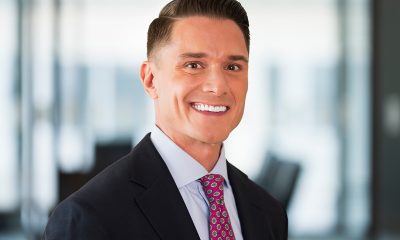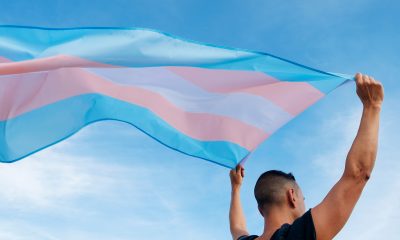Africa
South African authorities arrest four men linked to targeting Grindr users
Advocacy organizations have welcomed arrests
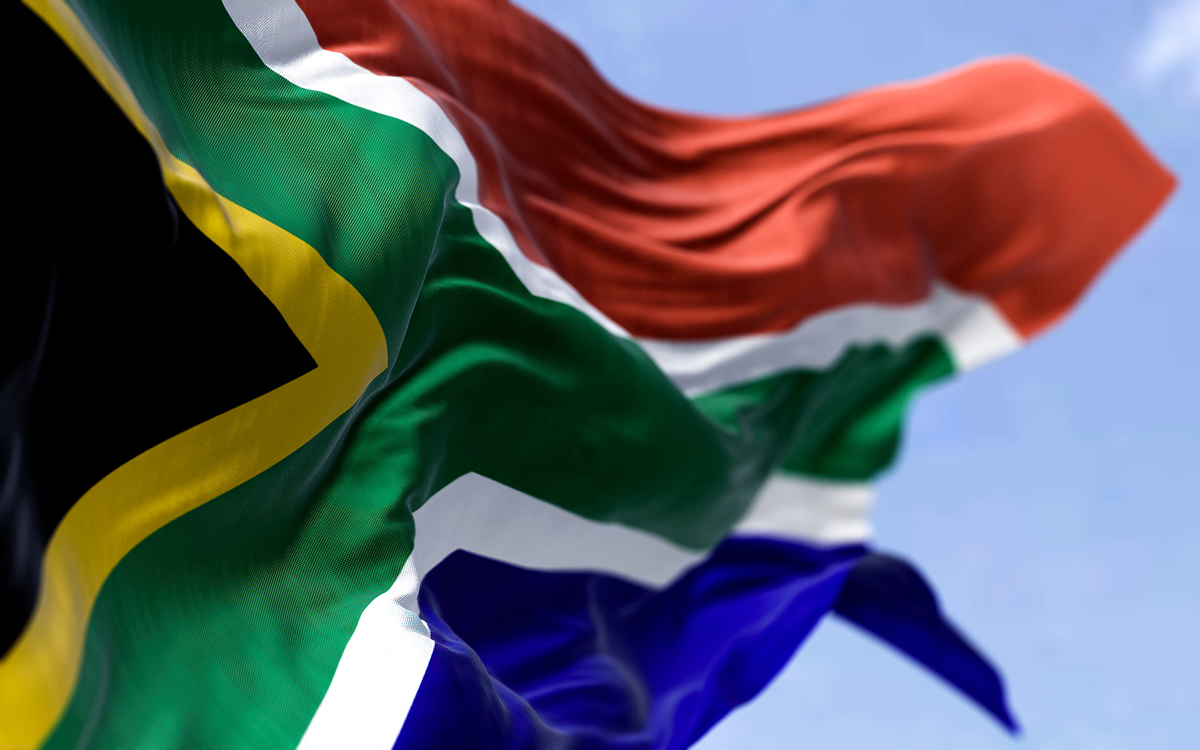
Access Chapter 2 and the Triangle Project are two of the South African LGBTQ and intersex rights organizations that have welcomed the arrest of four men who authorities say used Grindr to extort and victimize LGBTQ and intersex South Africans.
Brigadier Athlenda Mathe, a spokesperson for the Gauteng Police, said a 26-year-old man “who had been chatting to one of the suspects” on Feb. 13 “was lured to an area where he was hijacked, kidnapped and robbed of his personal belongings, including bank cards.”
“The suspects proceeded to make several purchases with the victim’s bank cards,” noted Mathe. “When the matter was reported to the Mondeor Police Station, the anti-kidnapping task team operationalized information and swooped on the four men who were meeting at the restaurant on the same day of the kidnapping.”
In response to the recent developments, Access Chapter 2 spokesperson Mpho Buntse said the organization commended the arrest by the South African Police Service.
“AC2 would like to take this opportunity to congratulate SAPS (South African Police Service) for the groundbreaking arrest of the terror-striking and so-called Grindr gang,” said Access Chapter 2.
Access Chapter 2 noted in 2022 it “kick-started a campaign to highlight the persistent cases of kidnapping, extortion and robbery in the hands of a group of Johannesburg men who used Grindr to lure gay men across the Gauteng province.”
“We are excited that this arrest may bring some form of justice and recourse for many victims and survivors,” said Access Chapter 2. “These incidents have instilled fear among users of the app, as a result, rang a terror alarm among the 2SLGBTQIA+ community. Although this arrest may signal some victory, we are still committed to working with SAPS to ensure that no other groups will emerge. We continue to urge the community to come forward should there be any similar incidents in the future.”
Thabo Ndlovu, 33, Ndumiso Mahlangu, 27, Sibusiso Tshabalala, 27 and Elson Nyati, 25, are the four men who have been arrested.
Buntse said Access Chapter 2 is “confident in the work of SAPS, as well as the judicial arm, in particular, the National Prosecuting Authority to ensure” the four men “are prosecuted and an exemplary precedence is set for future similar cases.”
We also call on Grindr to take a leap of responsibility in ensuring the safety of its users,” added Buntse.
The Washington Blade last August reported on a number of Grindr users who had been kidnapped.
One victim, Jake, told Exit, an LGBTQ and intersex newspaper, he agreed to meet a man he met on the gay hookup app at his home. Four men arrived and threatened to kill him if he didn’t give them money. Jake said the men released him six hours later after he paid them $600.
“We have always held a position that Grindr is a volatile space in itself and as much as people are free to engage in any digital space without fear or prejudice, we equally strongly advice that those that choose to use the space, do so with the highest caution and safety,” said Buntse. “Moreso, safety in South Africa is a matter of concern for everyone, every community, sector or wherever you may be at this juncture. So in essence, no one is feeling completely safe in South Africa. The overwhelming socioeconomic factors and the fact that we are the most unequal society in the world, are just some realities that lead to the high rates of violence and murders”
Ruth Maseko, convenor of the Triangle Project, nevertheless said Grindr was still one of the best dating apps and cited those who take advantage of the app should be prosecuted to the fullest.
“Some people may argue that apps like Grindr are an invitation to get hurt, but these apps provide freedom to many 2SLGBTQIA+ folk who cannot be out,” said Maseko. “They may have no other option to engage in socializing and finding friends who are part of the 2SLGBTQIA+ community. No matter what you think of Grindr, it is about finding connection and community. Those who are taking advantage of that and targeting the 2SLGBTQIA+ community are criminals. They are targeting an already vulnerable group who are susceptible to violence in South Africa every day.”
“Moreover, when it comes to the safety of the 2SLGBTQIA+ community, we unfortunately must be hyper vigilant,” added Maseko.
The Triangle Project offers these suggestions to hook up app users:
• Where possible try and get background information of the person you are meeting or hooking up with
• Tell a friend or family member about your date or party you will be attending
• There are apps where you can let a friend or family member track where you are
“2SLGBTQIA+ folk are also human beings, this means we have the right to safety and security as we navigate our lives,” said Maseko.
SAPS recently released its latest quarterly crime statistics which have left many scratching their heads.
South Africa between last October and December recorded 12,419 rapes and 7,555 murders with an average of 82 murders per day during that period.
Daniel Itai is the Washington Blade’s Africa Correspondent.
Senegal
A dozen Senegalese men arrested for ‘unnatural acts’
Popular journalist and musician among those taken into custody

Senegalese police have charged a dozen men with committing “unnatural acts.”
The New York Times reported Pape Cheikh Diallo, a popular television reporter, and Djiby Dramé, a musician, are among the men who authorities arrested. They appeared in court in Dakar, the Senegalese capital, on Monday.
Le Soleil, a Senegalese newspaper, reported authorities arrested the men on Feb. 6 “for intentional transmission of HIV, unnatural acts, criminal conspiracy, and endangering others.” The newspaper further notes the men have been placed in “pre-trial detention.”
Senegal is among the countries in which consensual same-sex sexual relations remain criminalized.
Police in Kaolack, a town that is roughly 135 miles southeast of Dakar, in 2015 arrested 11 people who allegedly engaged in same-sex sexual acts during “a celebration of a gay marriage.” The National Assembly in 2021 rejected a bill that would have further criminalized homosexuality in the country.
Uganda
LGBTQ Ugandans targeted ahead of country’s elections
President Yoweri Museveni won 7th term in disputed Jan. 15 vote

Barely a week after Ugandan President Yoweri Museveni secured a 7th term in an election marred by state violence, intimidation, and allegations of fraud, the country’s queer community spoke about how the election environment impacted it.
The LGBTQ lobby groups who spoke with the Washington Blade noted that, besides government institutions’ failure to create a safe and inclusive environment for civic participation by all Ugandans, authorities weaponized the Anti-Homosexuality Act to silence dissent and discourage queer voter engagement.
The rights groups note that candidates aligned with Museveni’s ruling National Resistance Movement — including Parliament Speaker Anita Among — during the campaigns accused their rivals of “promoting homosexuality” to discredit them while wooing conservative voters.
Queer people and LGBTQ rights organizations as a result were largely excluded from the formal political processes for the election as voters, mobilizers, or civic actors due to fear of exposure, stigma, violence, and legal reprisals.
“This homophobic rhetoric fueled public hostility and emboldened vigilante violence, forcing many queer Ugandans into deeper hiding during the election period,” Uganda Minority Shelters Consortium Coordinator John Grace stated.
Some queer people had expressed an interest in running for local council seats, but none of them formally registered as candidates or campaigned openly because of safety concerns and local electoral bodies’ discriminatory vetting of candidates.
“UMSC documented at least three incidents of election-related violence or intimidation targeting LGBTQ+ individuals and activists,” Grace noted. “These included harassment, arbitrary detentions, extortions by state and non-state actors, digital cat-fishing, and threats of outing.”
Amid such a militarized and repressive election environment, Let’s Walk Uganda Executive Director Edward Mutebi noted queer-led and allied organizations engaged in the election process through restricted informal voter education, community discussions, and documenting human rights violations.
“Fear of backlash limited visibility and direct participation throughout the election cycle,” Mutebi said. “But despite the hostile environment of work, Let’s Walk Uganda was able to organize a successful transgender and gender diverse youth training on electoral security and safety.”
Museveni’s government escalated its repressive actions during the Jan. 15 elections by shutting down the internet and suspending nine civil society organizations, including Chapter Four Uganda and the National Coalition of Human Rights Defenders, for allegedly engaging in activities that are prejudicial to the security and laws of the country.
The suspension of the rights organizations remains in force, an action both Mutebi and Grace condemn. They say it prevents queer Ugandans from accessing urgent services from the affected groups.
“For the LGBTQ community, the impact has been immediate and deeply harmful. Many of the suspended organizations, like Chapter Four Uganda, were critical partners in providing legal representation, emergency response, and documentation of rights violations,” Grace said.
This has compelled UMSC and its other partners to handle increased caseloads with limited resources, while navigating heightened scrutiny and operational risk.
“The suspension has disrupted referral pathways, delayed urgent interventions, and weakened collective advocacy for marginalized groups and minority rights defenders, which calls for urgent international solidarity, flexible funding, and protection mechanisms to safeguard the work of grassroots organizations operating under threat,” Grace stated.
Mutebi warned that such repressive actions are tyrannical and are indicative of shrinking civic space, which undermines democratic accountability as the promotion and protection of human rights is ignored.
With Museveni, 81, extending his tenure at State House from a landslide win of 72 percent, UMSC and LWU consider a bleak future in the protection of rights for queer Ugandans and other minority groups.
“Without significant political and legal shifts, LGBTQ persons will face continued criminalization, reduced civic space, and heightened insecurity, making sustained advocacy and international solidarity more critical than ever,” Mutebi said. “ It is unimaginable how it feels to live in a country with no hope.”
Grace, however, affirmed the resistance by local queer lobby groups will continue through underground networks, regional solidarity, and digital organizing.
The duo noted that a win by Museveni’s main challenger and rapper, Bobi Wine, who only managed 24 percent of the total votes cast, could have enabled the opening up of civil space and human rights protections in Uganda.
Wine, for his part, spoke in favor of the respect for the rule of law and human rights during his campaign.
“While Bobi Wine’s past stance on LGBTQ rights was inconsistent, his recent shift toward more inclusive rhetoric and international engagement suggested a potential opening for dialogue,” Grace said. “A win might have created space for policy reform or at least reduced state-sponsored homophobia, though structural change would still require sustained pressure and coalition-building.”
Mutebi stated that a change in Uganda’s leadership to a youthful leader like Wine could have offered an opening, but not a guarantee for progress on inclusion and human rights. Mutebi added existing institutionalized and societal homophobia remain in place.
Egypt
Iran, Egypt object to playing in Seattle World Cup ‘Pride Match’
Game to take place on June 26

Iran and Egypt have objected to playing in a “Pride Match” that will take place in Seattle during the 2026 World Cup.
The Egyptian Football Association on Tuesday said it told FIFA Secretary General Mattias Grafström in a letter that “it categorically rejects holding any activities related to supporting (homosexuality) during the match between the Egyptian national team and Iran, scheduled to be held in Seattle, USA, on June 26, 2026, in the third round of the group stage of the 2026 World Cup.” Football Federation Islamic Republic of Iran President Mehdi Taj told ISNA, a semi-official Iranian news agency that both his country and Egypt “protested this issue.”
The 2026 World Cup will take place in the U.S., Canada, and Mexico. The draw took place at the Kennedy Center on Dec. 5.
Iran is among the handful of countries in which consensual same-sex sexual relations remain punishable by death.
The State Department’s 2023 human rights report notes that while Egyptian law “did not explicitly criminalize consensual same-sex sexual activity, authorities regularly arrested and prosecuted LGBTQI+ persons on charges including ‘debauchery,’ prostitution, and ‘violating family values.’” Egyptian authorities “also reportedly prosecuted LGBTQI+ individuals for ‘misuse of social media.’”
“This resulted in de facto criminalization of same-sex conduct and identity,” notes the report.
The 2024 human rights report the State Department released earlier this year did not include LGBTQ-specific references.
Soccer has ‘unique power to unite people across borders, cultures, and beliefs’
The June 26 match between Iran and Egypt coincides with Seattle Pride. The Washington Post reported the Seattle FIFA World Cup 2026 Local Organizing Committee decided to hold the “Pride Match” before last week’s draw.
“As the Local Organizing Committee, SeattleFWC26’s role is to prepare our city to host the matches and manage the city experience outside of Seattle Stadium,” said SeattleFWC26 Vice President of Communications Hana Tadesse in a statement the committee sent to the Washington Blade on Wednesday. “SeattleFWC26 is moving forward as planned with our community programming outside the stadium during Pride weekend and throughout the tournament, partnering with LGBTQ+ leaders, artists, and business owners to elevate existing Pride celebrations across Washington.”
“Football has a unique power to unite people across borders, cultures, and beliefs,” added Tadeese. “The Pacific Northwest is home to one of the nation’s largest Iranian-American communities, a thriving Egyptian diaspora, and rich communities representing all nations we’re hosting in Seattle. We’re committed to ensuring all residents and visitors experience the warmth, respect, and dignity that defines our region.”
The 2034 World Cup will take place in Saudi Arabia.
Consensual same-sex sexual relations remain punishable by death in the country. The 2022 World Cup took place in neighboring Qatar, despite concerns over the country’s anti-LGBTQ rights record.

